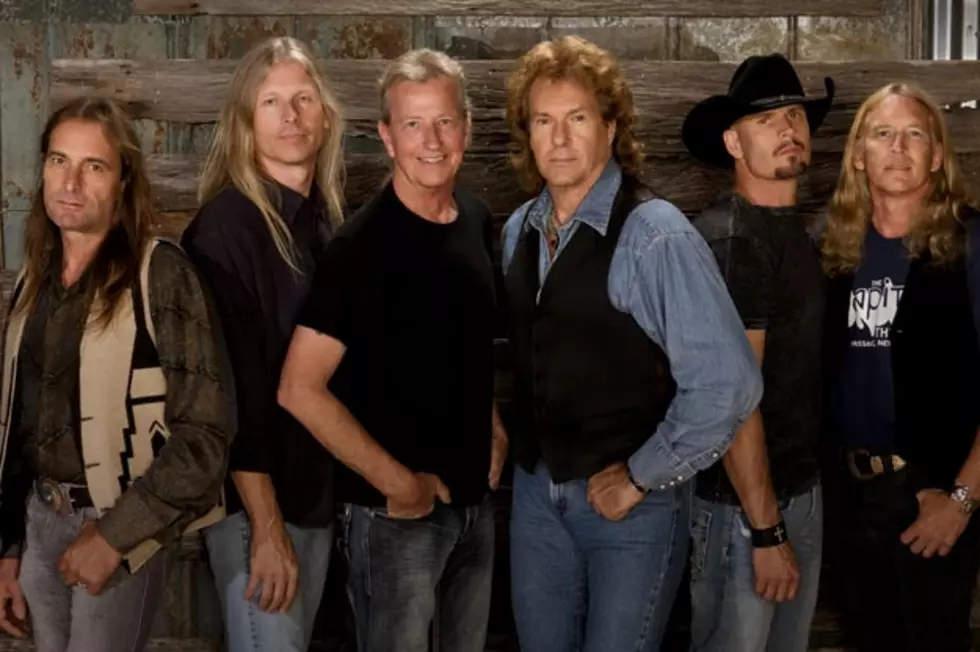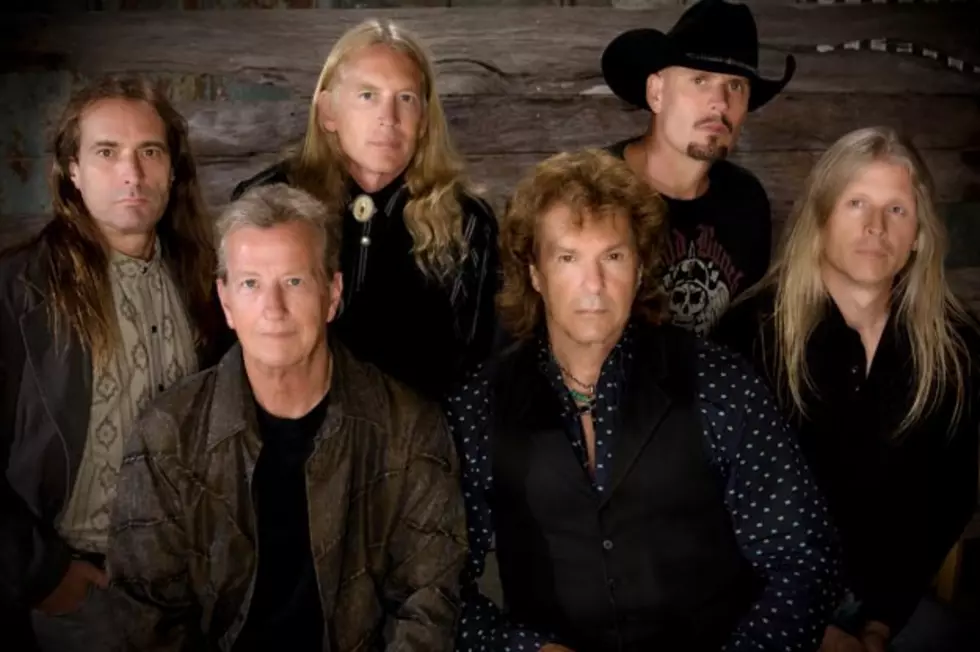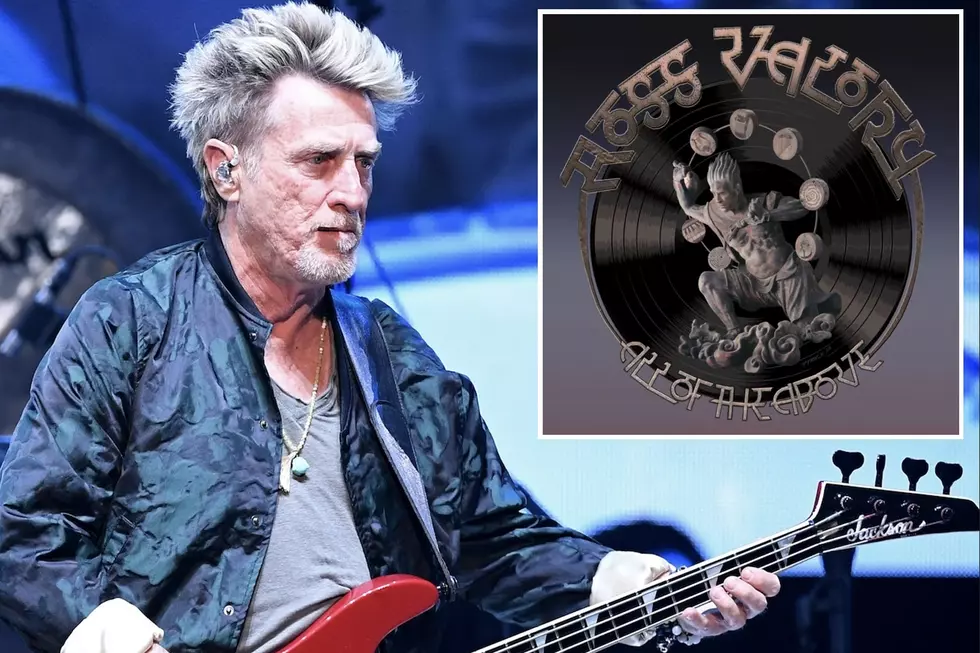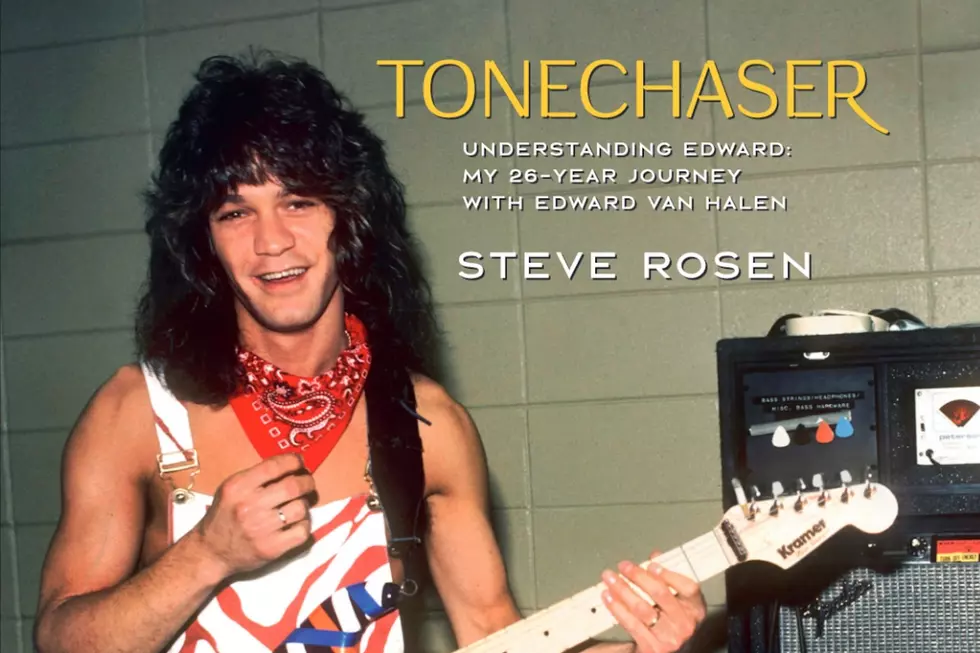
The Outlaws Stand the Test of Time and Prepare for a ‘Very Exciting’ Future
Throughout the years, the Outlaws, have seen many highs and lows that bands tend to face over time ... successful albums, deaths within the band, and the not so kind music industry which can be a constant battle at times. With 10 studio albums under their belt, the Outlaws are gearing up to head back into the studio for a new collection of songs that will be slated for release in 2012. Ultimate Classic Rock recently sat down with one of the Outlaw's original founding member and lead vocalist, Henry Paul, to discuss the past, present and future of one of the premiere phenomenons in the world of Southern Rock.
Talk about the years since forming The Outlaws and the road to where the band is today.
The Outlaws are a band we formed in the 70s. We formed in '72 and got a record deal in '75. The first album was successful and put us out on the road in arenas playing with major household name rock and roll bands. The first three or four years coming off the release of the record were very fast forward. They were very quick to accelerate from a lifestyle standpoint and notoriety. I think with every band that can be difficult because everyone is telling you how good you are and how much they like you, and a steady diet of that tends to change your outlook.
I left the band in '77. I was just butting heads and having over-control issues, so I started my own group and got signed to Atlantic Records. That was a great learning experience. I came back to the band in '83 and stayed until '89. We released another record at that time, and the record was a pretty good record. There were a few really good songs on it, but it was pretty clear that no one cared.
I came to Nashville in '90 and started [my country trio] BlackHawk with Dave [Robbins] and Van [Stephenson], and we were met with significant success. I went back to the Outlaws in 2005 for our 30th anniversary reunion, and some of the issues that got in the way of our growth and development showed back up. I was pretty disappointed by where it was going creatively and decided to extricate myself from the group and concentrate more on BlackHawk.
During that time, the Outlaws had the untimely passing of three of the five founding members -- Hughie Thomasson, Frank O'Keefe and Billy Jones.
It left Monte [Yoho] and myself the only two surviving members. Monte was playing with Hughie and the Outlaws for a long time [while] they continued on after I left in 2005. So Monte and I basically put the same band that Hughie and I formed back in 2005 together, along with Chris Anderson, Billy Crain, Randy Threet, and at that time, Jon Coleman. It made great sense
How was the feedback from your fans after the reformation of the Outlaws?
We came back out in 2008, and we've been met with very receptive and overwhelmingly supportive reactions.
That time period also meant bringing Dave Robbins back on board as the keyboardist.
Dave ventured out on a solo career in 2009. The following year, he made the decision to rejoin BlackHawk. I think the issues of the solo career were very rewarding musically and spiritually. Jon Coleman got an invitation from Trace Adkins, which he took, and Dave came back into the musical fold with the other five of us. Since, we have continued to tour and write and prepare ourselves to record a new album.
How has the songwriting within the group evolved over the years?
The songwriting environment for the Outlaws is very healthy. The Outlaws are a very stylistically specific group, so you have to write within the character of what the band represents and the historical legacy of what the band represents. But you also have to move forward, so it's a balancing act. Billy Crain and I, along with the other members of the band, have struck up a very exciting writing relationship. It's all an anthology of our connection to the genre of Southern Rock and our friendship with the different personalities involved in our pride and accomplishment in that genre, together as a group and individually as a band. We've got other songs we've written that we are going in to demo next week for the next Outlaws album.
Last year, the Outlaws faced a lawsuit from Hughie's widow that had to do with alleged trademark violations. It was resolved in April of this year in favor of the Outlaws. Was that a tough thing to go through?
That was a rather unfortunate and unsavory experience, but it seems as though we've worked through it, and we're going to continue on what we started.
Being based out of Nashville, you guys don't seem to play here often. Why is that?
I'm not really sure how Nashville would support the group. Nashville is an odd musical spot on the map. I think if it was promoted well, I think the band could do good business in Nashville, but sometimes trying to get our core audience out to a show is like trying to pry you away from your warm and cozy home. People when they reach a certain age in their life, aren't as driven by music ... they aren't as passionate or excited about it. Younger people tend to drive the musical equation, that's why rock 'n roll is a young man's game. People at an early age in their life try to find themselves socially and music is a very unique conduit to that experience. So it's a very important thing for them. If you look out into the audience of a big rock 'n roll festival, it's all kids from the age of 18-25 and they are all excited about that launchpad they're standing on for the rest of their lives. Once they launch though, their attitude changes to a degree. There are people who like music more than others. I was reading an interview the other day of T-Bone Burnett ... he was talking about how not everybody loves music the same ... some people really love it, and they love it so much that they'll go out of their way to seek it and find it. Other people who don't really care that much about music, they're satisfied with Top 40 radio and whatever -- Britney Spears ... great, Rihanna ... good.
The music industry as a whole has changed drastically over the years since the formation of the Outlaws. What is your biggest frustration with it nowadays?
The industry dresses up these beautiful women, and they send them out there like hookers. They have talent, but it's become much more of a risque media from a visual standpoint, and I think it's just been driven by the internet. Everything has become more risque. What used to be taboo is now common place. It's like we just keep accelerating in the business of sensational stimulus. Bob Dylan said to never confuse popularity with quality ... good is not always popular, and popular, more often than not, isn't very good. They create these careers for these people, they over inflate them and they explode ... people just go from one thing to the next, and they are always looking for something new. Right now it's Taylor Swift, who has a significant amount of talent. I know she takes a beating in the press because she's a so-so singer, but f--- the press. I mean, she's the one who is reaching an audience with a message, and her message is her message. That's not pre-fabricated, and so for now it's her. It used to be Elvis. For a while it was the Beatles and Bob Dylan. So we're just kinda peripheral participants in this ongoing game. The good news for us is we've outlasted a lot of our competition, and we're still standing. That is in large part a testament to my effort. I'm that way, I'm tenacious and somewhat of a fighter. So I'm happy for us and proud of us. I know how good the band is, so I think if we can just hang around long enough, we're gonna catch something that is gonna open up the door for us and let people see what we are.
What will the coming years bring for the Outlaws?
Our fans will finally get a healthy dose of the Outlaws here in 2012. Our plans are to release a new studio album, DVD and live album together. The DVD and live album are one specific release, and then there's a studio album for the Outlaws. Then we have another project we're working on that's a little bit different. We're in the early stages of it ... it's very exciting. I expect that 2012 will be a very exciting year for fans of the band from a new music.
More From Ultimate Classic Rock









